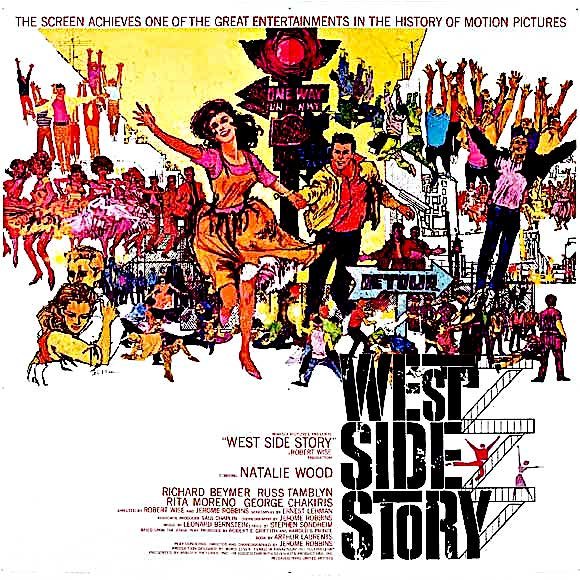WEST SIDE STORY DIDN'T HAVE TO GO SOUTH
There are plenty of theories being discussed bout the underperformance of the new West Side Story in theaters. Few have pointed to the music as the problem, except for those based on ignorance of the score and the whole reason for the musical to begin with—unless those critiques themselves were designed as click bait and willfully engineered. More about social media specialists in a moment.
There are two more very glaring reasons: savvy accessibility of the original 1961 film from Warner and the continuing poor effectiveness of negative marketing. The answer: connection and partnership rather than isolation and critique. There is too much of that already, why attach more of it to a prospective ticket purchase of the public?
I don't think musicals are the problem, it's just the right film at the right time. They had to know going in that a remake of an eleven-Oscar winner was a tough sell so the Spielberg name alone was the "star" that might have been the draw.
Hollywood is not out of ideas, it doesn't want to hear them. Spreadsheets sell movies, TV shows and most every creative concept because of the high risks. Movie companies are all conglomerates and answer to shares. The fact is that 1961's West Side Story, like most movies that are remade, was a perennial hit in theatrical reissues as well as numerous home video releases. The soundtrack album was number one for many weeks. That was part of the challenge of selling a new one, but the irresistible urge to make a new one.
Then comes marketing. How do you convince people to see a new version of an acclaimed movie? Just like toothpaste and laundry detergent. New and improved.
Do you really think all the social media pointing out the flaws of a movie came only from concerned citizens? One of the most common jobs on the market today is social media marketing specialist. The flaws of the 1961 film were researched and became selling points, then they were peppered into threads and discussions. That is how it's done now without the mass media of yesterday.
The flaws of the earlier film are valid, for sure, but at the time the film was cutting edge and explosive in its treatment of the hot buttons of juvenile delinquency, racial and sexual issues, especially in a mainstream Technicolor musical. This was the same year that Flower Drum Song and Babes in Toyland were released.
That's why the dancing, singing and now-dated aspects of the 1961 version can be understood because it was 1961. No matter how it was "fixed" for today, it does not have the impact it did then. But spreadsheets cannot understand that.
There's one other major fact that hurt the new film: Warner was aggressive in making their original version as accessible as possible. In marketing, it's called "piggybacking." You let the other people spend the advertising money and your ancillary product sells too as a result. The 1961 West Side Story has never been easier to see than in 2021. Guess why? Most people saw it for the first time or saw it again. They either decided it could not be topped, wanted to wait for streaming, or didn't care.
Studios and corporations, if they must do remakes, should now find ways to connect rather than disparage the originals to sell reboots and re-imaginings or they are going to lose money because it's proving to be an ineffective strategy. It immediately puts a large segment on the defensive, which is the worst thing in advertising and throws away the opportunities to leverage the good points of the original. This negative based thinking is not working.
As for the forthcoming big-screen version of Wicked, I wish it well, it was a great show. But they waited so long, there have been too many imitative movies since with sympathetic villains.
Maybe the next attempts at remakes, reboots and reimaginings will take a more positive approach, like Jon Favreau did with his version of Wat Disney’s The Jungle Book. Rather than disparage or nitpick the original or those who love it, he said his was intended to “stand alongside” the classic. Know your audience—even better, know your audiences.

